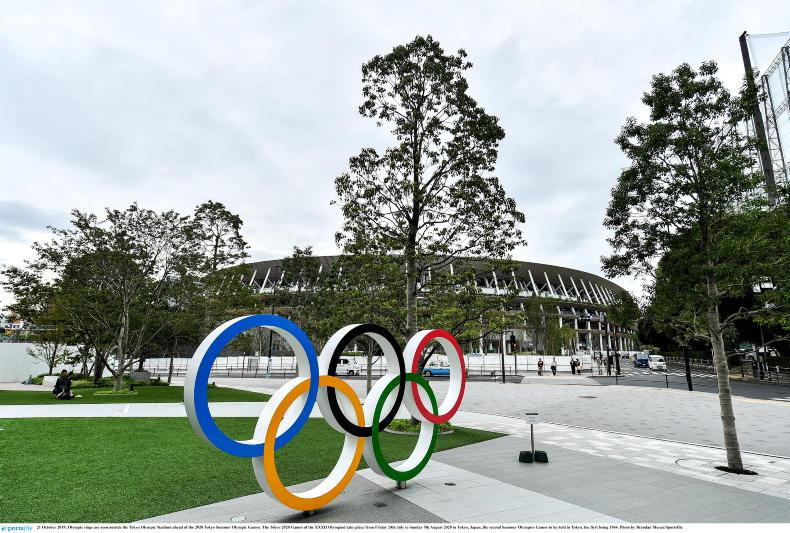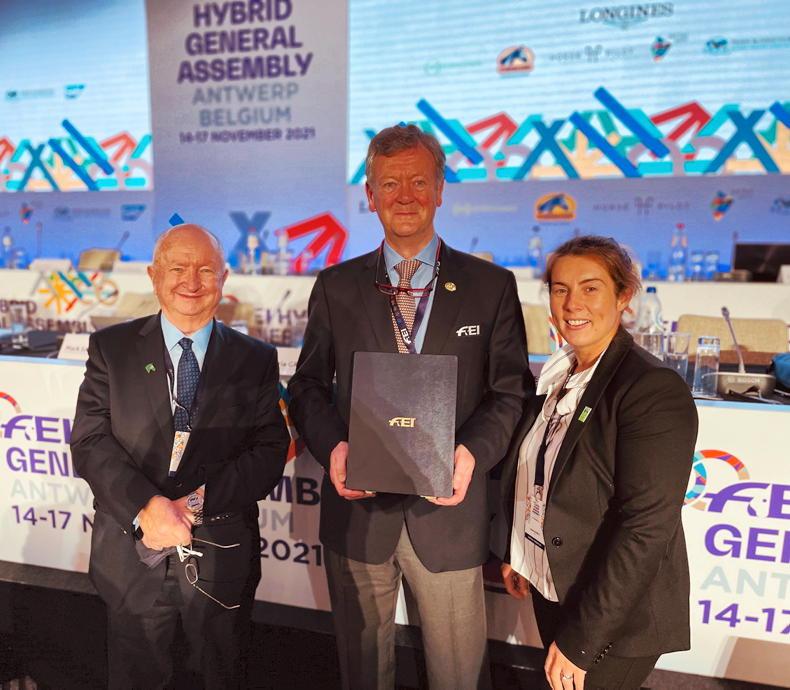The FEI General Assembly last week voted overwhelmingly in favour of the proposed format changes for the Olympic and Paralympic Games in Tokyo 2020. Horse Sport Ireland voted in favour of the changes which were crucial in order to keep equestrian sports as part of the Olympic Games.
The FEI proposed changes were as a direct result of equestrian sport being downgraded from a tier 3 to a tier 4 sport by the International Olympic Committee (IOC) after the 2012 Games in London. Tier 5 is the lowest tier and the downgrading to Tier 4 caused a great deal of concern for the FEI.
One of the aims of the proposal was to increase the number of nations represented in equestrian disciplines at future Olympic Games. This came in response to obligations under the International Olympic Committee (IOC) Olympic Agenda 2020 which called for more countries to be represented in Olympic equestrian sport whilst keeping within the existing quota of 200 competitors.
Following interaction with the International Olympic Committee, the FEI brought forward proposals, the most radical element of which was the reduction in the number of riders to three per team with no discard score. This allows more teams in and in the view of the IOC and the FEI it makes the formats more spectator friendly as the discard score was deemed to make the scoring of the sport more complex.
TWO YEAR DEBATE
These proposals were debated for over two years. HSI took the proposals very seriously. A great deal of concern was expressed about the proposals and the board invited Brian Mangan, a member of the FEI bureau, to a HSI board meeting to discuss the proposals during 2016,
The three disciplines affected by changes to the Olympic format, show jumping, eventing and dressage are all represented on the HSI board. The changes also effect Para Equestrian, who are represented on the HSI Sub Board.
Horse Sport Ireland CEO Damian McDonald wrote a comprehensive article on the proposals in The Irish Field in April 2016. This was also picked up by other media outlets.
The HSI Rules committee also discussed the proposals. The HSI board decided that, while they felt the four rider format was better for the sport, that the overriding priority had to be to ensure that all three equestrian disciplines remained in the Olympic Games. Accordingly, the board were cogniscent of the strong position adopted by the FEI President, the FEI Bureau and the FEI Olympic discipline committees, that the proposed changes were supported by the IOC and would improve our chances of keeping equestrian sport in the Olympics.
107 countries voted at the FEI General Assembly and only 11 opposed the changes. HSI was represented by James Kennedy, chairman of the HSI Finance Committee and of the Show Jumping High Performance committee and he carried out the mandate given by the Board.
“This was a really important vote for the future of our sport if we are to increase universality in accordance with the recommendations of Olympic Agenda 2020,” FEI President Ingmar De Vos said after the vote.
“We need to increase the number of participating nations at the Olympic Games but within our existing quota of 200. Reducing team members to three per nation was probably the only way to boost the number of flags. Of course this now has to be approved by the IOC, but it opens the door to countries that previously could only see the Olympics as a distant dream.
“There were some National Federations that didn’t agree with the proposal, but that’s all part of the democratic process. Now we need to work together to make this a success,” concluded the FEI President.
It is worth noting that the changed format will now see the number of show jumping team places increase from 15 to 20. Ireland has failed to qualify a show jumping team for the last three Olympics.
While the extra places have yet to be allocated to continents, it could potentially make it easier for Ireland to qualify a jumping team. The last minute proposal from the International Jumping Riders Club (IJRC) proposed that the number of team places be reduced to as few as 12 teams. It would have been a naive in the extreme for Ireland to support such a proposal.
The bigger picture here is that we must have equestrian sport at the Olympics. Our international Federation the FEI brought forward radical changes to improve our chances of keeping the sport in the games. They pleaded with National Federations to strengthen their hand in the Olympic movement by supporting these changes. Only 11 of 107 nations voted against the proposals. These changes will help our case but the threat of being out of the Olympics is still very much alive.
Being removed from the Olympics would be a disaster for our sport. It would remove the Olympic dream for riders, owners and breeders and reduce the value of every promising show jumping, eventing and dressage horse on the planet. The changes in formats agreed in Tokyo will be a small price to pay to keep equestrian sport in the Olympic Games. Let’s hope we have done enough.
The proposed changes are detailed below:
Jumping
Dressage
Eventing
Para-Equestrian Dressage


 This is a subscriber-only article
This is a subscriber-only article
 It looks like you're browsing in private mode
It looks like you're browsing in private mode









SHARING OPTIONS: